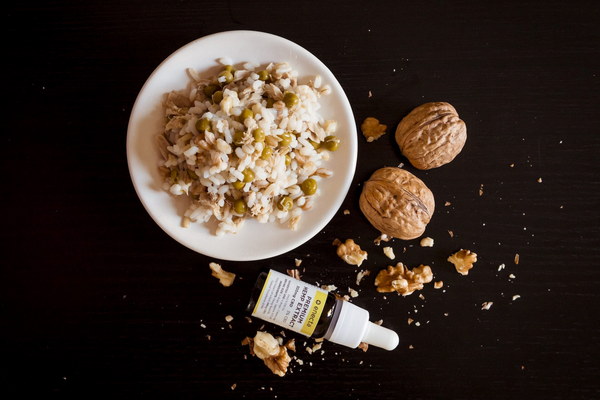Can Qi and Blood Deficiency Lead to Dampness Removal Exploring Traditional Chinese Medicine Insights
In Traditional Chinese Medicine (TCM), the concepts of Qi and Blood play a crucial role in maintaining the body's balance and health. Qi, often translated as vital energy, is the fundamental life force that flows through the body, while Blood is the substance that nourishes and supports the body's tissues and organs. When there is a deficiency in either Qi or Blood, it can lead to various health issues, including the accumulation of dampness. But can individuals with Qi and Blood deficiency actually benefit from dampness removal? Let's delve into this topic.
Understanding Qi and Blood Deficiency
Qi and Blood deficiency are common imbalances in TCM, often resulting from factors such as poor diet, stress, overexertion, or chronic illness. These deficiencies can manifest in various symptoms, including fatigue, weakness, pale complexion, poor concentration, and a lack of energy.
The Role of Dampness in TCM

Dampness is another key concept in TCM, referring to a pathogenic factor that can disrupt the body's balance. It is often associated with excessive moisture or fluid retention, which can lead to symptoms like bloating, edema, and joint pain. Dampness can arise from external factors, such as living in a damp environment, or internal factors, such as excessive intake of cold, damp foods.
Can Qi and Blood Deficiency Lead to Dampness?
In TCM, a Qi and Blood deficiency can create a fertile ground for dampness to accumulate. This is because both Qi and Blood are essential for the body's metabolism and fluid balance. When these vital substances are insufficient, the body's ability to regulate fluids can be compromised, leading to dampness.
However, it is also possible for individuals with Qi and Blood deficiency to experience dampness removal. Here’s how:
1. Stimulating Qi and Blood: By addressing the root cause of the deficiency, which could involve herbal remedies, acupuncture, or dietary changes, the body's overall energy and circulation can improve. This can help in the elimination of dampness.
2. Herbal Remedies: TCM practitioners often use herbs to tonify Qi and Blood and to remove dampness. For example, herbs like Astragalus (Huang Qi) and Codonopsis (Dang Shen) are commonly used to tonify Qi, while herbs like Poria (Fu Ling) and Atractylodes (Cang Zhu) are used to drain dampness.
3. Acupuncture: Acupuncture can help to restore the balance of Qi and Blood and improve the body's ability to eliminate dampness. Specific acupuncture points are used to address the underlying deficiencies and support the body's natural healing processes.
4. Dietary Adjustments: A diet rich in warming, nourishing foods can help to tonify Qi and Blood while also aiding in dampness removal. This might include foods like ginger, turmeric, and garlic, which have natural diuretic properties.
Conclusion
In conclusion, while Qi and Blood deficiency can contribute to the accumulation of dampness, it is also possible for individuals with these deficiencies to benefit from dampness removal. By addressing the underlying deficiencies and incorporating appropriate TCM treatments and lifestyle adjustments, it is possible to restore balance and improve overall health. It is important for individuals to consult with a qualified TCM practitioner to develop a personalized treatment plan that addresses their specific needs and imbalances.









